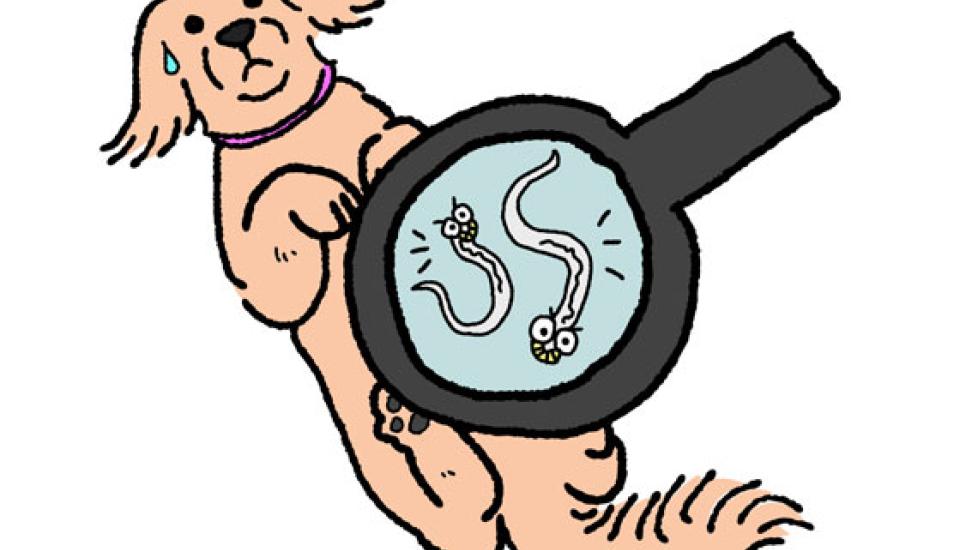Parasitic Worm Infections – Rare, But Nasty
One of the most interesting and important classes in my freshman year of veterinary school was parasitology. Whenever you take on a pet, you take on the potential for extra little hangers-on, from fleas and ticks to ear mites, and everyone’s favorite, worms.
While worms are definitely gross and cut an impressive display floating in jars of formaldehyde at the veterinary clinic, most of us in developed countries don’t find them too frightening as long as we keep up with recommended care. We have effective heartworm preventives, dewormers for the common intestinal worms, and USDA oversight of the food supply that hopefully minimizes risk from what we eat.
Without those protective measures, bad things happen to people. Hookworms that wriggle through the soles of your feet, ocular larval migrans (that means worms in your eye), hydatid cysts full of tapeworm segments in the lungs or liver. We veterinarians are tasked with keeping our animals free of these parasites that can also infect humans, but for the most part these horrifying little nightmares are things we hear about but rarely see.
But life likes to keep us on our toes, as evidenced this week with not just one, but two major stories in the news featuring the lowly tapeworm wreaking havoc on humans.
In Northern California, 26 year old Luis Ortiz went to the emergency room with the worst headache of his life. To the shock of both Ortiz and the doctors, they found a tapeworm larva and cyst in his brain strangling blood flow, a rare condition known as neurocysticercosis. The most common cause of tapeworm infection is eating undercooked meat containing tapeworm eggs, though most of the time the tapeworms remain in the digestive tract. Ortiz is recovering after successful surgical removal.
Also making the news this week is a story from the New England Journal of Medicine featuring a man in Colombia who was riddled with tumors he got from a tapeworm. While the patient had the additional underlying disease of HIV that weakened his immune system and made him more susceptible to disease that otherwise would not be a problem, the idea of a parasite with cancer transferring that cancer to a human host is perplexing and, well, pretty awful.
This is not to say that you need to run out and demand dewormers from your doctor, since these types of complications from parasites are blessedly rare. But since we’re all here and grossed out, now’s as good a time as ever to remember some basic tips on avoiding your own American Horror Story:
- Keep up routine exams and dewormings on your pet
- Wash your hands often, especially after gardening
- Cook foods to the recommended safe temperatures per FDA guidelines
Happy (and safe) eating!

Dr. Jessica Vogelsang
